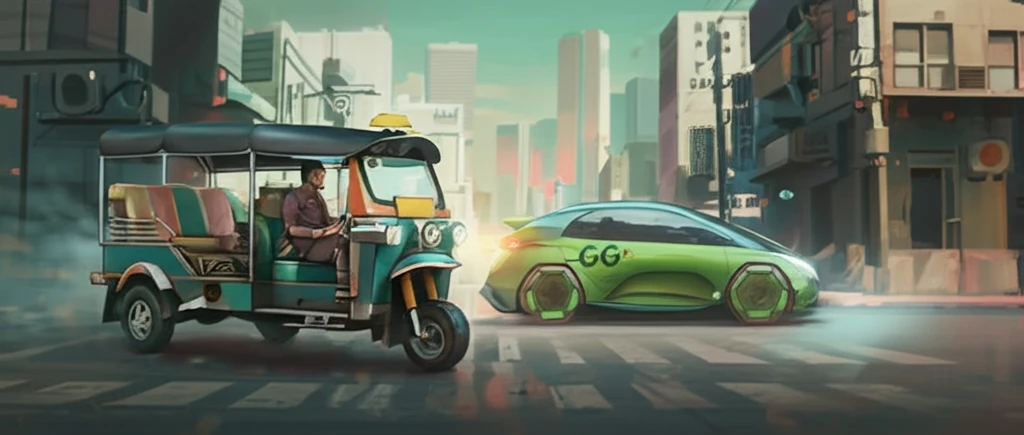
Bangkok's Tuk-Tuk Dilemma: Can Green Technology Overcome Poverty and Corruption?
"Exploring the barriers to eco-friendly transport adoption in Thailand's capital and what it means for a sustainable future."
Across the globe, cities face increasing pressure to adopt green technologies and practices to combat pollution. In Bangkok, Thailand, this push raises complex questions, especially when it comes to the city's iconic Tuk-Tuks. These three-wheeled vehicles, while beloved by tourists and locals alike, contribute significantly to air pollution. Efforts to transition Tuk-Tuks to cleaner alternatives like CNG (Compressed Natural Gas) have met with resistance, highlighting a tangled web of economic, social, and technical challenges.
A recent study delved into the factors influencing Tuk-Tuk drivers' adoption of green technology in Bangkok. The research combined qualitative exploration to identify key issues, followed by quantitative analysis to confirm their significance. By interviewing 176 drivers and analyzing the data, the study revealed that socio-economic factors, often exacerbated by green technology-related hurdles, play a major role in their reluctance to embrace change.
This article unpacks the findings of this research, exploring the specific challenges faced by Tuk-Tuk drivers in Bangkok. It examines how poverty, debt, lack of education, and systemic corruption intersect with issues like the high cost of green technology, insufficient infrastructure, and lack of technical expertise. Understanding these barriers is crucial for developing effective strategies to promote sustainable transportation and improve air quality in Bangkok and other developing cities.
Why Bangkok's Tuk-Tuk Drivers Are Hesitant to Go Green: Untangling the Barriers

The study identified a cluster of interconnected issues preventing Tuk-Tuk drivers from adopting green technology. These can be broadly categorized as:
- Limited Access to Capital: Many drivers lack the credit or savings to afford new CNG Tuk-Tuks or to convert their existing vehicles.
- Daily Survival: For many, their daily earnings are just enough to cover basic needs, leaving little room for long-term investments in green technology.
- Indebtedness: Some drivers are already burdened with debt, making it difficult to take on more financial obligations.
Towards a Greener Future: Overcoming the Obstacles
Transitioning Bangkok's Tuk-Tuks to green technology requires a multi-faceted approach that addresses the socio-economic realities of the drivers, tackles corruption, and improves the accessibility and affordability of green alternatives. This includes providing financial assistance, streamlining bureaucratic processes, investing in CNG infrastructure, and promoting technical training. By working collaboratively, policymakers, businesses, and community stakeholders can pave the way for a cleaner, more sustainable transportation future for Bangkok, ensuring that the benefits of green technology reach all segments of society.
